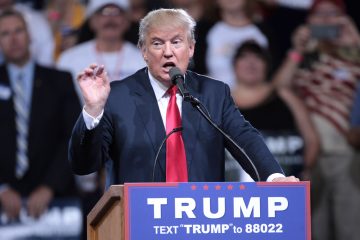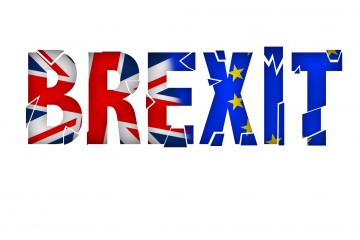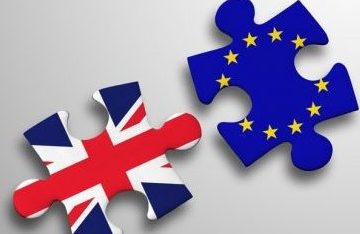
The Impact of Brexit on Europe-China Relations
The decision of the United Kingdom (UK) to leave the European Union (EU) in the referendum of June 23rd 2016 has reverberations well beyond Europe as a political and economic shock of substantial proportions. The future relationship of China, both with the remaining member states of the EU and with the UK, is one example of how a domestic political decision is having global ramifications as change ripples through the international system. Overarching any analysis about the impact of Brexit must be a sense of caution about what still remains unknown over the shape of future policy outcomes. Two cross-cutting factors are particularly important: the first is a legal and political one – what will the resulting settlement between the …

How voter turnout could put Trump in the White House
I recently spent a month travelling in the US and the word on the street is that Donald Trump could be the next president. Before the EU referendum earlier this year, I wrote about public opinion in the UK. At the time, most political pundits were predicting a remain result but there was a noticeable public sentiment to leave. Something similar is happening in the lead up to the US presidential election. While many political commentators still find it difficult to accept that Trump is a contender, many of the people whom I met on my road trip expect him to win. Of course, given voting is not compulsory in the US, voter turnout will have a big influence on the result. …

The 1975 Referendum on Europe
The United Kingdom joined the European Economic Community (as it then was) on 1 January 1973 after negotiations by the Conservative government led by Edward Heath. In the run up to the subsequent 1974 General Election the Labour Party pledged, in its manifesto, the United Kingdom’s first nationwide referendum on whether to stay part of the Economic Community on renegotiated terms or to completely part company. With a Labour victory, the new Prime Minister, Harold Wilson, followed through on his promise and a referendum was held on 5 Jun 1975. The outcome was an overwhelming victory (67%) for the ‘In’ campaign. The 1975 vote in favour of Europe did not, however, end the debate on the United Kingdom’s membership of what …

The case for uk parliamentary oversight of negotiation of the brexit agreements
On 6 September 2016 Professor Derrick Wyatt QC presented evidence to the House of Lords EU Select Committee on Parliamentary Scrutiny of the Brexit negotiations. In this article, Professor Wyatt summarises his contribution. A video of the oral evidence session is included below the article. When the uk triggers article 50, formal negotiations on a withdrawal agreement and a future trade agreement will begin When I last wrote for this blog about Brexit and the Article 50 process, shortly after giving evidence to the House of Lords EU Select Committee, I was writing about something that might happen. Now, more than two months after the referendum decision to leave the EU, I am writing about something that will happen. Once Article 50 …

Four Lessons from Brexit and its Fallout
There is no shortage of lessons to be learned from Brexit and its fallout – for politicians, businesses and the public alike. For strategists, analysts and advisors, these past few weeks have provided a host of examples of both good and bad practice. Surveying recent events, four take-aways stand out: 1) Forecast, don’t predict No one predicted this. Nor did the polls or the betting markets. Even the leaders of the Leave campaign did not predict Brexit. More than this, though, no one predicted that within weeks of a vote all of the Leave campaign’s victorious leaders would have resigned from the field and a new Prime Minister (who supported Remain, however quietly) would be installed in Downing Street. Polling …

The Schadenfreude Candidate
Donald Trump is probably not a Manchurian candidate planted by Vladimir Putin to disrupt the American political landscape. That is just the latest attempt to explain how, of all people, the crude thrice-married billionaire from the outer boroughs became the Republican nominee for President of the United States. While the “Trump as Russian sleeper agent” theory is far-fetched, several well thought-out explanations have caught on. Too often, though, these fail to explain why Trump specifically became the standard-bearer of the GOP and stands a shot at winning the election. The jump from “what is happening” to “why him,” is key to understanding the Trump phenomenon. Bearing this in mind, I argue that Donald Trump is the candidate of schadenfreude. Not …

“I usually vote but I didn’t vote this time”: How to improve electoral surveys
How can we improve the quality of post-election survey data on electoral turnout? That is the core question of our recent paper. We present a novel way to question citizens about their voting behaviour that increases the truthfulness of responses. Our research finds that the inclusion of “face-saving” response items can drastically improve the accuracy of reported turnout. Usually, the turnout reported in post-election surveys is much higher than in reality, and this is partly due to actual abstainers pretending that they have voted. Why do they lie? In many countries, voting is a social norm widely shared by the population. In established democracies voting is considered a duty, and is part and parcel of being a “good citizen”. Public …

Data for Policy: Data Science and Big Data in the Public Sector
How can big data and data science help policy-making? This question has recently gained increasing attention. Both the European Commission and the White House have endorsed the use of data for evidence-based policy making. Still, a gap remains between theory and practice. In this blog post, I make a number of recommendations for systematic development paths. Research trends shaping Data for Policy ‘Data for policy’ as an academic field is still in its infancy. A typology of the field’s foci and research areas are summarised in the figure below. Besides the ‘data for policy’ community, there are two important research trends shaping the field: 1) computational social science; and 2) the emergence of politicised social bots. Computational social …









